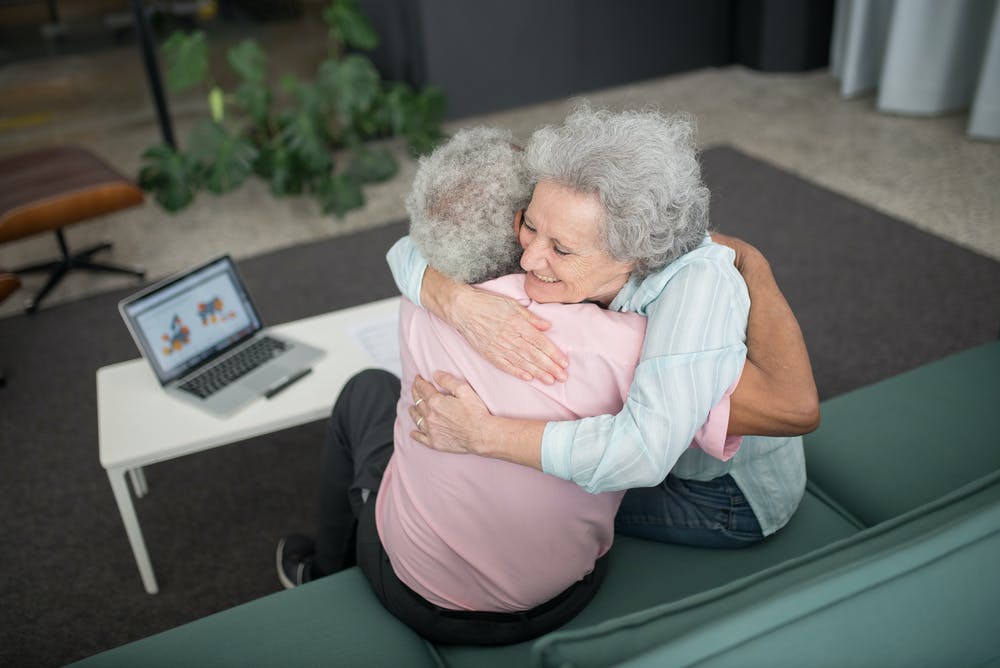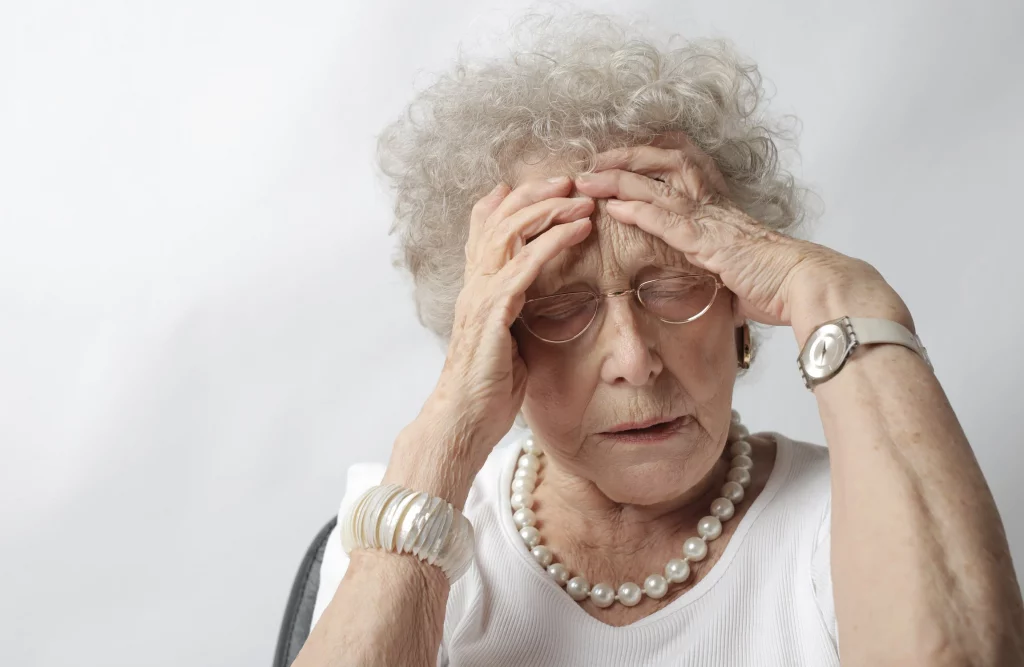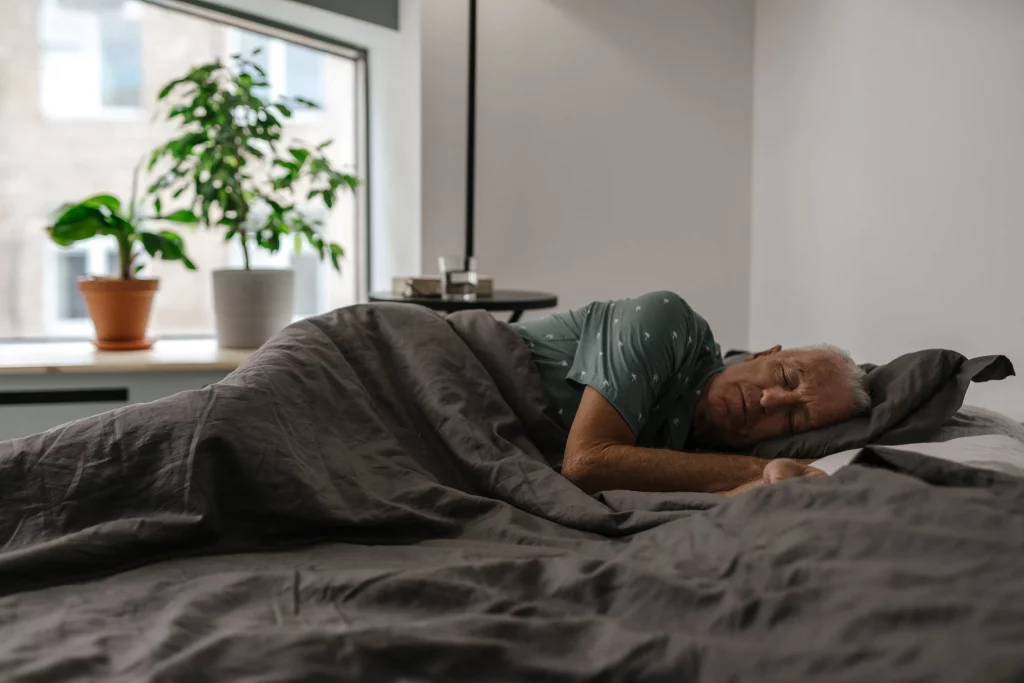As we all know, seniors have been a lot throughout their life. And some of these experiences can stick with them for a long time. That is especially true for negative experiences, which can lead to post-traumatic stress disorder. Home health care provider Amavi guides you on how to help your older loved ones overcome such experiences and get back on their feet.
What Is Post-Traumatic Stress Disorder
At its most basic, post-traumatic stress disorder is a psychiatric disorder that occurs in people who have gone through or witnessed traumatic events or circumstances. Such experiences can be life-threatening, or something that is physically and mentally harmful. These leave a lifelong impression on them and can impact their interaction with loved ones and the larger world.
The condition is also known as “being shell-shocked: since it was initially observed in soldiers returning from World War I. The constant shelling these soldiers experienced in the trenches hurt their mental well-being. Hence, many seniors diagnosed with PTSD are often retired soldiers.
However, the condition can affect anyone that has experienced such events. According to statistics, 70% of adults experience at least one traumatic event in their lifetime. Of these, around 20% will likely develop PTSD because of that event. Women are more likely to be afflicted with the condition, with 8% being susceptible to it, compared to 4% in men.
What Causes PTSD?
As mentioned earlier, people can develop PTSD after going through traumatic events. Some examples of these events are:
- Serious car accidents
- Physical or sexual assaults
- Wars and large-scale unrest
- Violence
- Abuse
- Severe medical conditions
- Childbirth experiences, including losing a child
- Being exposed to traumatic experiences at work, including watching these remotely
- The death of a loved one
However, it is essential to note that people have different tolerance levels for events. As such, some might come out of such experiences relatively unscathed and live their lives normally. Others might show signs of PTSD almost immediately after the event. On the other hand, some people might look all right now only to show symptoms years later. Because of these different expressions of the illness, creating an intervention as immediately as possible can sometimes be hard.
Why Does PTSD Develop
While scientists are still not sure why PTSD manifests in individuals, they have several prevailing theories.
- A survival mechanism: Some scientists believe that it is an instinctive mechanism to help individuals survive other traumatic events.
- Higher adrenaline levels: Certain studies showed that people with PTSD also continue to produce abnormally high amounts of adrenaline even after the event.
- Changes in the brain: PTSD may be due to changes in the brain induced by the event, such as the shrinking of the hippocampus.
As scientists understand the disorder more, they will have better insights into what triggers it. That will help in creating more effective treatments for the condition.
The Symptoms Post Traumatic Stress Disorder
The symptoms of PTSD can often be varied, as people might express it differently from other cases. However, doctors recognize four broad categories of symptoms.
Intrusive Memories
The first type is the sudden recollection of memories related to the traumatic event. Here, the patient might start recalling the memories again without any apparent reason. They start having flashbacks and relive the memories as if they are happening again. Patients might also respond negatively to something that might remind them of the memories. Recurring nightmares are a common occurrence.
Avoidance
At the other end of the spectrum, your loved one might also try to actively suppress the memories of the event. That attempt includes avoiding anything that might make them recall the memory, such as places, things, and even people. Such avoidance can affect how they interact with the world around them.
Changes In Cognition And Mood
As your loved ones grapple with these resurgent memories, they might also begin to exhibit negative behaviors. For instance, they might start becoming angrier and more restless than usual. They might also begin to think negatively about themselves, which can lead to bouts of depression and becoming emotionally numb. They may also start detaching away from friends and family.
Changes In Physical And Emotional Reaction
Lastly, you will likely notice significant changes in how they physically and emotionally respond to their environment. For example, they might become more easily startled or frightened. They might also have trouble sleeping or concentrating. Ultimately, this can lead to self-destructive behaviors like alcoholism or substance abuse.

Helping Your Older Loved One Deal With PTSD
While every patient struggles with post-traumatic stress disorder, seniors can be especially vulnerable. That is because they are already going through many emotional and physical changes. The added stress of the condition can break them even more.
You as their family should be ready to support and help them. That requires a lot of effort. Here are some of the essential steps
Understanding The Condition
As you can see, PTSD can be a very complex condition. However, that should not stop you from trying to understand what your loved one is going through. Here, you should understand that your loved ones don’t control these symptoms. Thus, you need to help them come to terms with symptoms.
Part of this is understanding how traumatic the event really is. Note that it can sometimes be hard if you are just hearing the story from them. But you should internalize the event and think about what you yourself would feel. This gives you a better grasp of their trauma.
Showing Compassion
However, you should also know that you might not fully understand their experience. With that, be ready to reach out to them in a more compassionate manner. You should be ready to simply listen to their story and help them with their emotions.
But you should avoid the mindset of trying to “snap” your loved ones out of the feeling. They won’t, and you will likely make it worse for them. Letting them pour their heart out will do better to ease the pain they feel. Just be there for them afterward.
Understand Co-Factors And Triggers
As we have said, seniors also have to grapple with other conditions at their age. That can make their PTSD episodes worse. Alzheimer’s and dementia are some of the most common ones here. Here, you need to know how the conditions interact with each other. That will give you an idea of how to respond to them.
Additionally, you should be aware of the triggers that might bring about episodes. Note that this can vary significantly from patient to patient. As such, you should fully understand the story of their experience to identify potential triggers better.
Keep in mind that avoiding these triggers is not always the best option. Instead, have a plan on how to address these triggers. For instance, you can teach your loved one some meditative exercises to help them when confronted with these. Take time to develop your plan to suit their experience better.

Getting Help From The Right Home Health Care Provider
However, dealing with your older loved one’s PTSD is not something one person can always handle. At Amavi, we offer a comprehensive home healthcare group to help you. Aside from expert caregivers, we also offer counseling and psychiatric services. We can even connect your loved one to support communities so that they can meet people with similar experiences. Contact us today and let’s help them get back on track.


